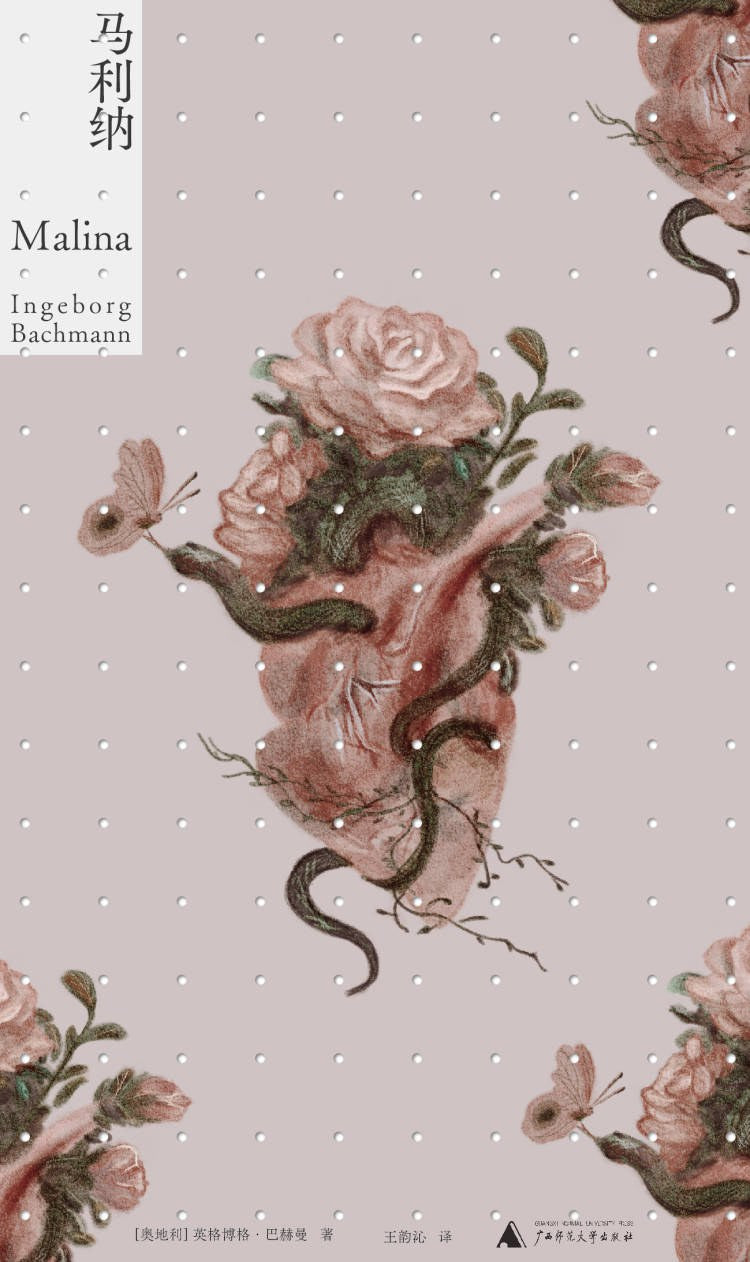Malina
Malina
[Austrian] Ingeborg Bachmann
Low stock
Couldn't load pickup availability
About Book
About Book
Malina
Douban
NeoDB
🌊Content Introduction:
Hello, I am an anonymous woman and I live in Vienna.
I live with Marina and I'm in love with Ivan.
Malina was on the other side of the wall, and Ivan was on the other end of the phone line.
I died in Marina and lived in Ivan.
I often have nightmares about my father.
I occasionally imagine the legendary past of this land.
I scared away reporters who came to interview me and kiss my hand.
I am a sad Harley Quinn like Pierrot.
Today, I am still here, in my Hungarian Alley, a wide, curved territory.
But one day, I will disappear and walk into the oldest and strongest wall.
"This is murder."
——————————
【Editor's Recommendation】
※ Bachmann, a treasure of 20th-century German literature, wrote only this long autobiographical novel, the first Chinese edition
Ingeborg Bachmann
A star poet of the 47th Society, winner of the Büchner Prize and the Austrian State Prize, and nominated for the Nobel Prize in Literature;
She initiated the tradition of female writing in Austria and is known as "the first pop idol of Austrian literature";
Peter Handke, Thomas Bernhard and Elfriede Jelinek are considered her successors.
Of the four volumes of “Ways of Death” she planned during her lifetime, she only completed the first volume, “Malina”;
In 1991, it was adapted into a play by Nobel Prize winner Jelinek, and the movie of the same name starred Isabelle Huppert.
※ "A hurricane of words began to roar in my head": a dizzying reading experience, a poetic wandering with flashing images
The novel does not focus on the plot, but unfolds in a stream of consciousness format, telling the life of an Austrian female writer in the first person.
Fairy tales, dreams, reality and memories are interwoven, dialogues, monologues, interviews and operas are combined.
The stabbed princess, the devilish father, the intellectuals at the hypocritical banquet, the derelict postman on trial...
Bachmann uses a hurricane of words and absurd and distorted expressionism to lift the reader's senses into the air.
※ “We spoke to each other the language of light and darkness”: Bachmann’s tribute to Celan
In 1948, Bachmann and Paul Celan secretly fell in love in Vienna.
The former was the daughter of a Nazi; the latter was a Jew who survived hard labor and whose parents died in a concentration camp.
For the next twenty-two years, this ongoing relationship brought each other joy, poetry, and great pain.
After Celan's death, Bachmann published Malina and then died young. One sank into the water, the other into the flames.
The semi-autobiographical "Malina" became the lover's only self-narration.
"This is the grave of murdered daughters" — a radical statement about the condition of women
After Malina was published in 1971, it immediately became a bestseller in German.
However, critics criticized the book for merely revealing the author's chaotic private life and worrying mental state.
It wasn't until the 1980s that people discovered the work's deeper intention: to see the possibility of political change in private life.
The work is regarded as one of the classics of women's literature.
※ Designed by the well-known young designer Xihe, it contains three exquisite hand-drawn maps
The entire cover is laser-perforated and printed on pearlescent paper, featuring an exquisite combination of flowers and butterflies, snakes and hearts;
Contains three exquisite hand-drawn maps. Follow the heroine's monologue and stroll through Vienna on paper.
——————————
【Celebrity Recommendation】
The wisest and most important woman writer our land has ever produced.
—Thomas Bernhard
It’s astonishing how radically Bachmann defined the female condition before “feminism” actually existed.
—Elfriede Jelinek
Bachmann was the first popular idol of Austrian literature.
—Franzo Bell
Malina ranks alongside the best of Virginia Woolf and Samuel Beckett.
—The New York Times Book Review
Bachmann's perspective is so original that it's like adding a new letter to the alphabet.
—The Guardian
A feminist classic.
—The Paris Review
Publication Date
Publication Date
Publisher
Publisher
Imprint
Imprint
Pages
Pages
ISBN
ISBN
share

